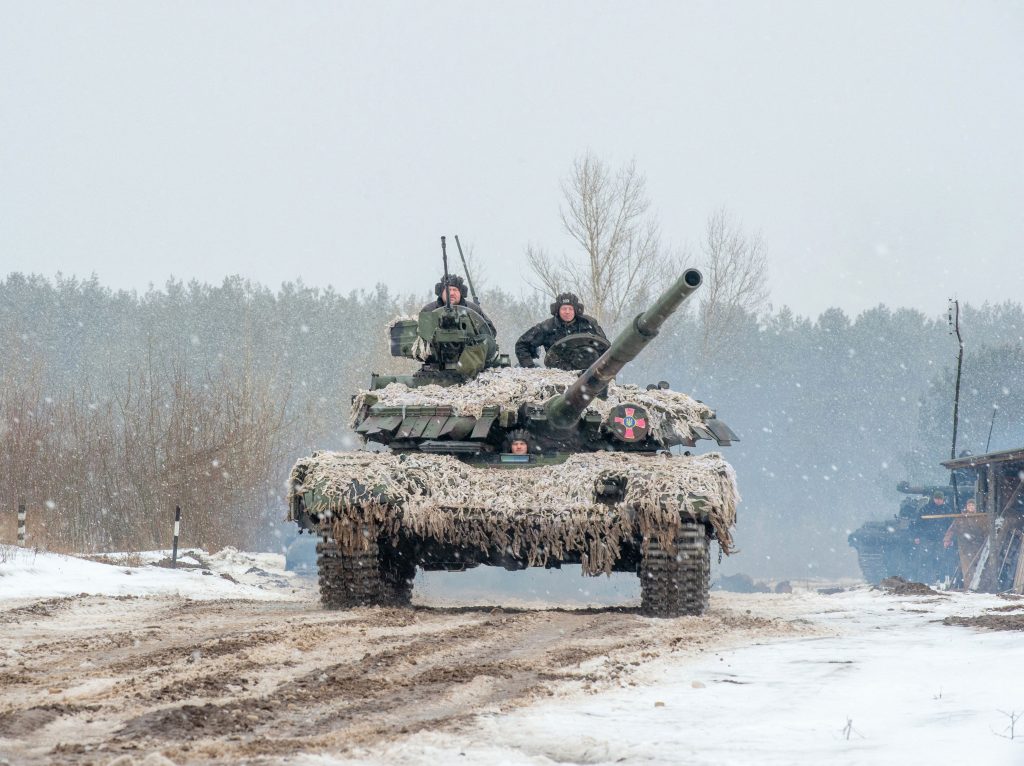- On March 1, Henning Dräger and his family were at home in Kyiv, rushing to cram whatever they could fit into their suitcases.
- They squeezed in pants, socks, underwear, sleeping bags, and cans of non-perishable food. They’d already withdrawn as much cash as they could from local ATMs.
- It was one week into Russia’s invasion of Ukraine, and rockets were raining down over the capital.
Staying in the city had grown perilous, and a friend texted Dräger’s family to warn them that Russian troops might try to encircle Kyiv and cut off escape routes. If they were going to get out, the friend said, he and his family needed to leave now.
Dräger, 51, the chief sustainability officer and ESG partner at the Ukrainian arm of the international accounting and consulting giant BDO, loaded his Ford Fiesta sedan with luggage. Then he — along with his son, Thor, and the 8-year-old’s mom, Natalia — headed to Kyiv’s Ramada Hotel, where the next morning they linked onto a United Nations car convoy leaving at 6 a.m.
The convoy stretched nearly 70 cars long, affording them a degree of security that traveling independently would not. But traveling in such a large group was not always easy, and getting from Kyiv to the border of Hungary took nearly five long days. Finding stops to sleep, shower, or fuel up with gasoline was a constant source of stress.
All the while, the family couldn’t stop thinking of what they had left behind: their home, school, colleagues, and friends. The saddest part, Dräger said, was watching once-picturesque countryside villages suddenly defended by walls of sandbags in advance of the oncoming assault.
“I have cried so many tears of sorrow, loss, and anger, you wouldn’t believe it. I feel a profound sense of loss for the future of the young generation of Ukrainians,” Dräger told Insider in an interview this week. “I just feel tired, but I need to keep going.”
“I never thought on my CV would be ‘refugee,” the corporate consultant said while speaking from a hotel in Košice, Slovakia.
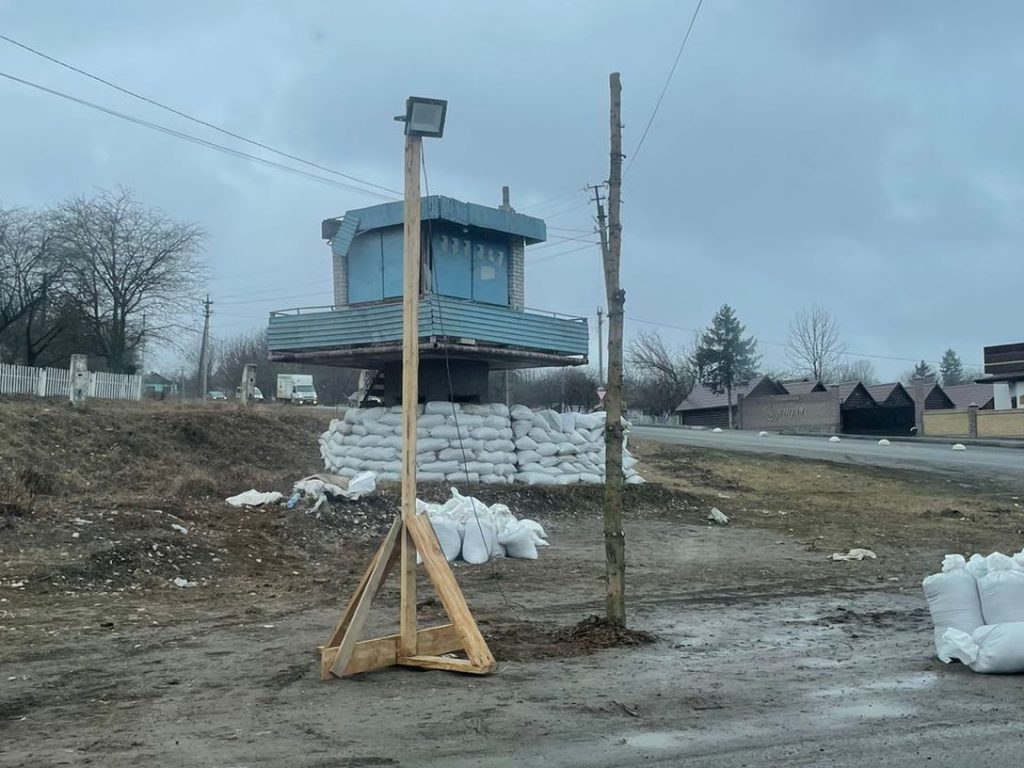
His family’s dramatic escape is just one of countless stories in a humanitarian crisis that is putting international companies from Wall Street to Silicon Valley in a difficult spot. Most of these firms don’t have playbooks for dealing with situations like this and, like BDO, are improvising their response as they go.
“This is not a situation you could plan for,” said Trond-Morten Lindberg, chief executive of BDO in Europe, the Middle East, and Africa, who last week traveled to Slovakia from his homebase in Oslo, Norway, to help orchestrate the company’s emergency response.
“If there was ever a time for a global firm like us to pay 100% attention to the safety of our people, it is right now,” Lindberg told Insider. “The focus is simply just to get a hold of our people and make sure we are ensuring their safety as best possible.”
The conflict in Ukraine has already produced the “fastest-growing” refugee crisis in Europe since War World II, according to the United Nations. But it’s not just the flood of refugees that’s causing pain for companies with business interests in the region.
I never thought on my CV would be ‘refugee.’Henning Dräger, chief sustainability officer, BDO Ukraine
Executives from New York to London to Zurich are racing to determine what the crisis means for them as the war unleashes a whirlwind of challenges, including pressure to cut ties with Russia and help employees in the line of fire.
Credit Suisse is one such firm, warning in its annual report this week of the potential for “an adverse impact our businesses” as the situation unfolds.
Businesses are also struggling to figure out whether keeping a corporate foothold in Ukraine will even be viable long term. “Our ambition is obviously to build BDO Ukraine back as strong as possible,” Lindberg said.
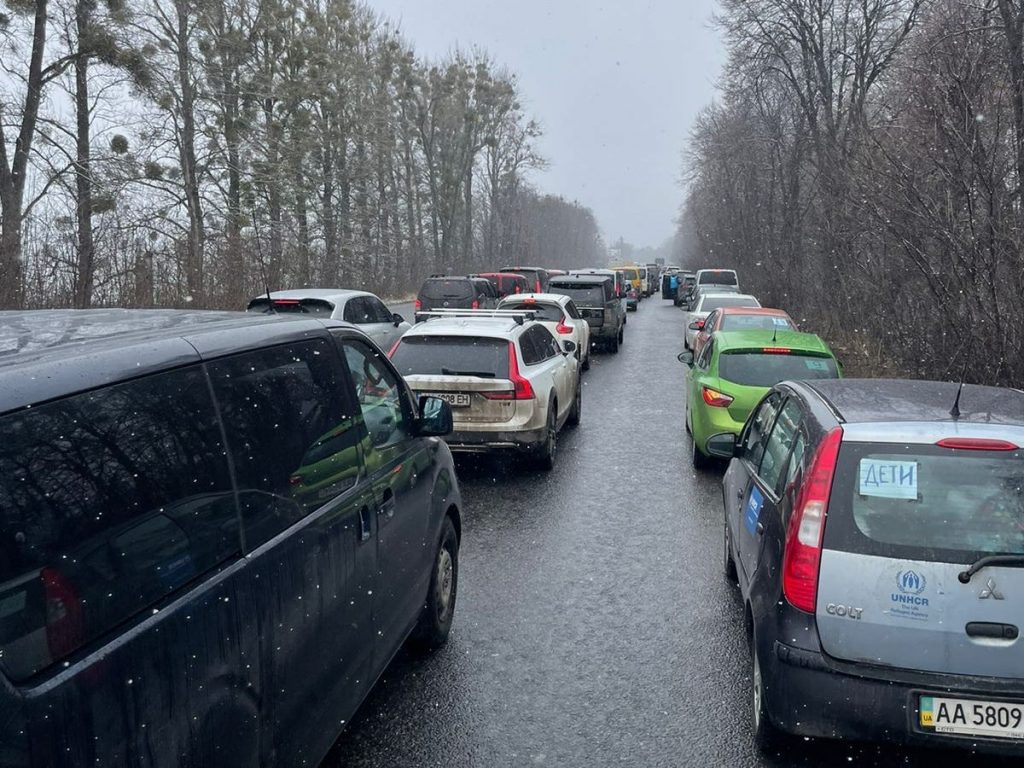
Since the fighting broke out, BDO has seen about 20% of its Ukraine-based workforce of nearly 200 people exit the country, according to Allan Evans, the firm’s global head of business development and marketing.
Those who have fled are seeking shelter in Poland, Hungary, Slovakia, Moldova, and Romania, Evans said in an email to Insider.
In an effort to help displaced staffers, Lindberg and his colleague Vera Savchenko, CEO of BDO Ukraine, have relocated to Slovakia. The two were traveling together by car near Ukraine’s western border when Insider reached Lindberg by phone on Thursday.
They said they are communicating with employees — about the latest train times, where to access cash — in text message group chats over encrypted apps. The chats also provide a forum for staffers to encourage one another and share hopeful messages during an otherwise bleak time, they said.
The company, which last year employed more than 97,000 people around the world, has agreed to cover all expenses tied to evacuation efforts by Ukraine-based staffers. That includes both transportation and accommodations, Evans said, as well as reimbursements for any other costs they run into along the way.
BDO also announced this week that it would sever ties with Russia and its ally Belarus — a ripple effect of the conflict that’s challenging C-Suites around the world.
Goldman Sachs and JPMorgan Chase on Thursday became the first big US banks to announce plans to wind down their businesses there, following hundreds of other companies like Starbucks and BP.
More Wall Street banks are expected to follow their lead — at least if Volodymyr Tsapko has anything to say about it.
Tsapko is a Ukrainian private-equity investor living in Zurich, Switzerland, who has relatives in western Ukraine. He’s joined forces with about 10 other Ukrainian financiers who live in Europe and North America to form a loose coalition called Stop Business With Russia.
Members of the group — who count asset management, equity research, and investor relations professionals among their ranks — have penned letters to executives at more than 50 companies calling on them to dump their Russian assets.
Until they do, "they will be continuing to pay taxes in the country, so directly financing the war," Tsapko told Insider this week, speaking by phone from Zurich. "They will be legitimizing the regime."
Tsapko is familiar with both the nuances of the financial sector and the world of ESG, where financial firms frequently make pledges to pursue the greater social good.
Previously, Tsapko was a director in financial institutions investment banking at Deutsche Bank in London. Since 2018, he's been the head of financial institutions and fintech private equity at the $3.7 billion European impact investment firm responsAbility Investments, which says on its website that it concentrates on deals that "have deep and positive impact."
Banks that have yet to part ways with Moscow are in "direct contradiction" with their public ESG commitments, Tsapko said. "Frankly," he added, they are "complicit in Russia's aggression."
Crossing into Hungary over five days was just the first leg of Dräger's trip.
From there, he and his family have passed through Slovakia, Poland, and Germany, with the final destination intended to be Dräger's hometown of Copenhagen, Denmark. It's not clear how many days the whole trip could take.
When they arrive in Denmark, the family will stay with Dräger's sister for a time as they determine their next move, which could include temporarily resettling there. It's impossible to say when or if they will get back to Ukraine.
In Kyiv, Dräger's apartment now remains empty, save for the relics of his life before the war that he left behind: suits and ties, college graduation gifts, pictures of his parents.
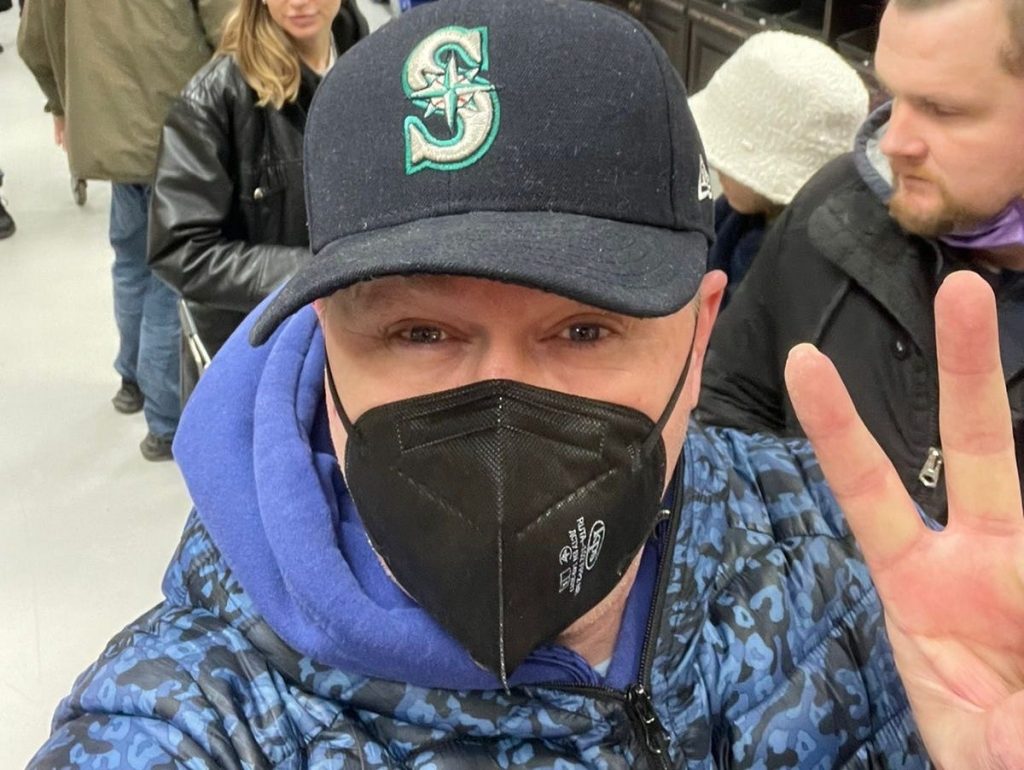
In addition to worrying about what the future may hold, Dräger — a former sustainability risk manager at Goldman Sachs who helps BDO clients on sustainability disclosures or their ESG strategies — spends a lot of time thinking about his BDO colleagues. Not all of them wanted, or were lucky enough, to make it out.
Some stayed behind in Ukraine to take up arms against the Russians "on the frontline," he said. "Those colleagues, we might never see again."
Sheltering at home, a few have also found temporary comfort in the monotony of continuing to do their work as Russian forces close in. The predictable rites of a tax or accounting audit are helping them "keep sane," Dräger said.
The well-being of his son Thor — who's pleased to be off from school, even though he doesn't fully understand what's going on — also dominates his thoughts. The 8-year-old has been absorbed by playing on his iPad during long drives or overnight stays in unfamiliar cities. On car trips, the family avoids listening to news reports on the radio, and strives to keep the conversation light.
"I'm not a psychologist, but we just stick close to him and make sure that one of us is always there, and make sure that he's well fed and entertained," Dräger said. "He doesn't have to say anything — just be a child." (The parents are raising Thor together, but are no longer romantically involved).
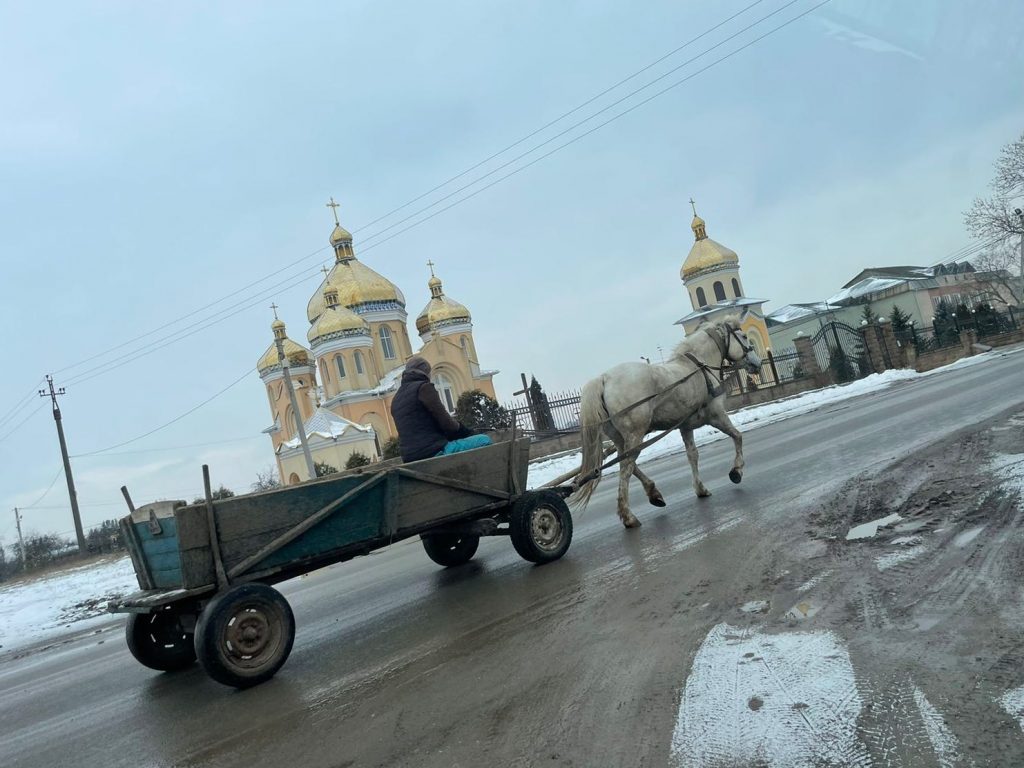
Amid everything going on, one pastime has emerged that's brought the family a sense of catharsis: singing the Ukrainian national anthem together.
When the uncertainties of their reality start to feel too great, they sing the anthem's single verse. It celebrates patriotism, and seems particularly well suited for this moment.
"The glory and freedom of Ukraine has not yet perished," one of the lyrics goes. "We, too, brothers, we'll live happily in our land."

